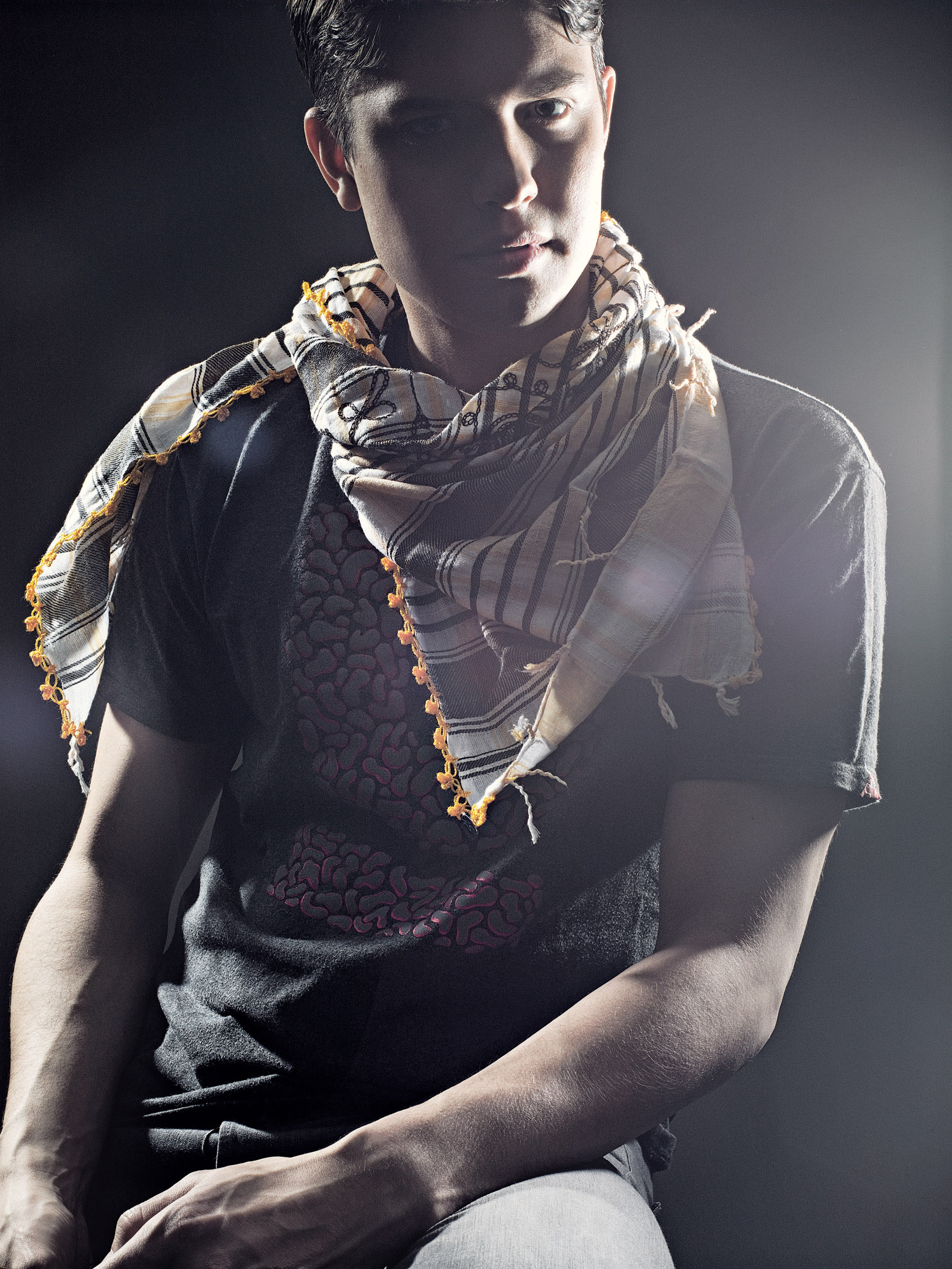Heartthrob

With a funk musician for a father and a childhood spent at a jazz studio, it’s little wonder that Jesse Siminski (a.k.a. Heartthrob) would end up making music that you can dance to—even if the 33-year-old musician’s career route was roundabout. Three years ago, the former Midwestern club kid ditched a steady PR gig in New York to move to Paris and make electronic music his business. Siminski, who recently relocated to Berlin, released his latest album, Dear Painter, Paint Me (Minus), in July.
ANITA SARKO: Where did you grow up?
HEARTTHROB: In Marquette, Michigan—the middle of nowhere. Trees and Lake Superior. Growing up in a place like that, your mind is really looking for stimuli. So when you’re a teenager, you start to get into music or movies or art—whatever information you can get.
AS: What first opened up your eyes to electronic music? I read that you were also interested in dance.
H: Yeah, jazz dancing.
AS: You were a miniature Bob Fosse.
H: [laughs] Yeah, definitely.
AS: You had jazz hands?
H: I still do. [laughs] Once you have ’em, you can’t get rid of ’em.
AS: So here we have our little boy up in the wilds of northern Michigan: You’re developing your jazz hands, music is all around you, and then all of a sudden you go off and follow the rave scene. What made you get up and join the circus?
H: In Michigan, Wisconsin, Illinois, and Ohio, there were a lot of young people making independent music. They were just making the music they wanted to make and starting their own magazines to support it with a really powerful, independent, do-it-yourself mentality. I really connected with that.
AS: How would you describe your sound?
H: Heavy. Emotional. Kind of pretty. Sensual. Futuristic. Modern would be a good way to describe it. A little schizophrenic. Totally schizophrenic, actually. [laughs]
AS: You’ve said that people keep calling your music dark. I hear something cinematic in it.
H: My approach tends to be about mood, but I also try to apply a pop sensibility in some ways. The idea is to make something really emotional, to create some sort of moment in time, some sort of catharsis, that activates your imagination.
AS: There’s such a connection with trance, with ambient, with techno—it transports you. Ecstasy created its own music, but the same kind of music would have been created by acid before that.
H: I have no idea what drugs would fuel my music. I’m sure it’s compatible with a few. But for me, it’s a way of getting ideas out there. Seeing the impact of a track that you’ve made is so profound; you’re following what you love and it’s having a positive impact.
AS: And what’s more magical than creating that feeling of being back in your basement with your friends, throwing records onto the record player?
H: With a fantastic sound system.
AS: The sound system you always wanted.
H: Maybe have some attractive people around to create some sexual tension.
AS: Oh, you’ve got to. You don’t meet people if you stay at home.
H: There’s always the Internet.
AS: Well, that’s true.
H: But there’s no magic on the dance floor there, right? And that’s some powerful stuff, dance-floor magic.






